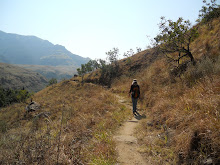Incognita Ferreira has finished school. Not just this year, all of it. She recently matriculated with an A in East London, otherwise known as Environmental Lifeskills, a few Bs and one C in a subject she manages to keep a secret forever.
Since the age of six, Incognita has been in the habit of enforcing her full name. ‘It’s In. Cog. Ni. Ta,’ she would say, hands on hips, staring any opposition down. ‘And not Cognita. Neeta!’ No one argued for long. Her brother, Octavius, the maturer of the two in age only, calls her Cog, as in ‘tiny cog in the great wheel of the world’, but by now she has learned to ignore it. He was optimistically named for the eighth child in the large family their mother had yearned for, though she and their father were blessed with just the two. No one ever asks where Incognita’s name originated, which is lucky; she herself is much loved, but the source of her name is a tale of woe and despair best forgotten.
‘Out with the old, in with the new’ is Incognita’s motto for this stage of her life. Her Goth phase is over, and she’s making plans for the future that may still include black clothing and furtive behaviour, but with a different purpose. Going away to varsity, bumming around overseas for a year, getting married – none of these are for her. She is finally going to put into action the career she has been dreaming of ever since she and Tavy used to watch Remington Steele on Tuesday nights. She is going to be a Private Investigator, right here in her beloved home of Jakkalsbessievallei, just west of the Kruger Park. It’s a small place, but as Miss Marple, another favourite of Incognita’s, frequently finds, a lot of mischief and malice is practised beneath the sun-dappled and apparently tranquil waters of a pond.
Incognita has no real experience, of course, but she feels she has the smarts that the job needs. After all, she’s aware that Mrs Taljaard next door often goes out at night, leaving her front door unlocked; and it has occurred to her to wonder why Jackie Ramsammy from down the road is the only blond child in the large Ramsammy family. And she has noticed that, since spring, Melody Smyth from the deli counter at Shoprite has been wearing a lot of long-sleeved t-shirts, and sunglasses indoors. What’s up with all of that?
Over the coming years, Incognita will discover how often there are four seasons in one day – life can be mysterious and mundane, fascinating and disappointing in the space of a few hours. Mrs Taljaard sleepwalks, and there’s nothing in her house worth taking. Jackie Ramsammy is Lola Labuschagne's child, the woman who had gone for an acting job in Jo’burg and never came back. Having slept over at his best friend Les Ramsammy’s house the night she left, Jackie simply stayed, and after a year, a letter from Lola and some legal gymnastics he received the Ramsammy name. And Melody ... well, Melody will marry her sweetheart, and so Incognita’s musings about bruises on arms and black eyes will come to nought, and she will never learn that in her late teens Melody had begun to suffer from a rare and chronic condition that afflicts her skin and eyelids for the rest of her life.
But all of this is in the future. Right now, Incognita is lying near the sprinkler in the garden on a blazing hot day in December. She’s letting her torso get a bit of the sun it has not seen in years. She is dozing and planning, planning and dozing. She got her driver’s licence recently, and for work will use the Mazda Midge her parents gave her, fixed up by her father and sprayed royal purple. She’ll also rely on the family cat. During her Goth years, Incognita had taken a brief plunge into the world of Wicca, and used the cat as her familiar. Now, though Liquorice won’t be accompanying her on cases, he will serve as a trusty colleague in thrashing out the findings on her return. Maybe she will offer to locate Mrs Taljaard’s ancient engagement ring, for a small introductory fee. Incognita’s school days – or nights, rather – have left her fearless of cemeteries and secluded spots, and she thinks she knows the best place to start looking.








